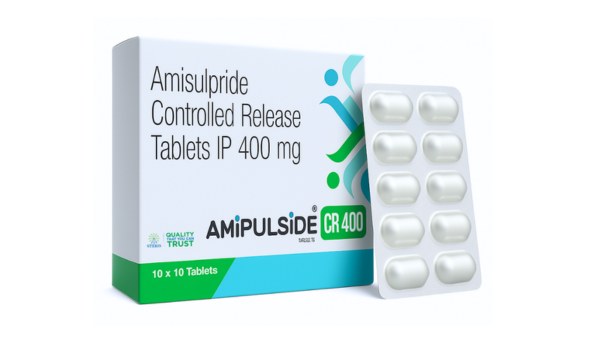Amisulpride Tablet 400 mg: Uses, Side Effects, Mechanism & FAQs
Jul 15, 2025
Introduction
An amisulpride tablet is a second-generation (atypical) antipsychotic medication used to treat various mental health conditions, particularly schizophrenia and acute psychotic episodes. It works by balancing dopamine activity in the brain, which helps control symptoms like hallucinations, delusions, and disorganized thinking.Amisulpride 400 mg tablet is typically prescribed for adults experiencing moderate to severe psychotic symptoms, and is sometimes also used in lower doses for depressive disorders or bipolar disorder under medical supervision.
Amisulpride Tablet Uses (amisulpride tablet uses)
Amisulpride tablets are clinically approved and widely used in the following conditions:
Primary Indications:
-
Schizophrenia – both positive symptoms (e.g., hallucinations, delusions) and negative symptoms (e.g., emotional withdrawal, flat affect)
-
Acute psychotic disorders
-
Bipolar mood disorders (off-label use in some regions)
-
Persistent delusional disorders
-
Depression with psychotic features (low-dose amisulpride)
How Amisulpride Tablet Works (amisulpride mechanism of action)
Amisulpride selectively blocks dopamine D2 and D3 receptors in specific areas of the brain. Unlike older antipsychotics, it does not significantly affect serotonin, nor does it interfere with other neurotransmitter systems like histamine or acetylcholine — which makes it more tolerable and less sedating.
Mechanism of Action Highlights:
-
Low doses (50–200 mg): Improve depressive symptoms by stimulating dopamine in certain brain regions.
-
High doses (400–800 mg): Block excess dopamine to treat psychosis and agitation.
This dose-dependent activity makes amisulpride tablets unique among antipsychotic medications.
Amisulpride 400 mg Tablet – Detailed Overview
Amisulpride 400 mg is a standard therapeutic dose used in the management of moderate to severe psychosis. The tablet may be prescribed as a single daily dose or split into two doses, depending on clinical need and patient tolerance.
Benefits of Amisulpride Tablet
-
Controls hallucinations and delusions
-
Improves motivation, social interaction, and emotional expression
-
Fewer side effects like sedation, weight gain, or metabolic issues compared to older antipsychotics
-
Suitable for both inpatient and outpatient psychiatric care
-
Effective for both early onset and chronic schizophrenia
Amisulpride Side Effects (amisulpride side effects)
Like all medications, amisulpride tablets may cause side effects, although not everyone experiences them. Common and serious side effects include:
Common Side Effects:
-
Dizziness
-
Sleep disturbances (insomnia)
-
Restlessness (akathisia)
-
Constipation
-
Weight gain
Serious Side Effects:
-
Elevated prolactin levels (leading to breast enlargement or menstrual irregularities)
-
Extrapyramidal symptoms (muscle stiffness, tremors)
-
Increased heart rhythm (QT prolongation)
-
Rare allergic reactions
Seek immediate medical help if you experience chest pain, palpitations, seizures, or severe movement disorders.
Precautions Before Using Amisulpride Tablets
-
Not recommended for children under 18 unless advised by a specialist
-
Use cautiously in elderly patients, especially those with cardiovascular disease
-
Regular monitoring of ECG, blood sugar, and prolactin levels is advised
-
Avoid alcohol, sedatives, or recreational drugs during treatment
-
Inform your doctor if pregnant, breastfeeding, or planning pregnancy
Drug Interactions with Amisulpride Tablet
Amisulpride may interact with several medications. These interactions may reduce its effectiveness or increase the risk of side effects.
Do Not Take Amisulpride With:
-
Other antipsychotics or dopamine agonists (e.g., levodopa)
-
Heart rhythm drugs (e.g., quinidine, sotalol)
-
Anti-anxiety drugs or benzodiazepines – can increase CNS depression
-
Antidepressants like SSRIs – may enhance serotonin-dopamine imbalance
-
Alcohol – can worsen drowsiness and increase risk of side effects
Always provide a full medication list to your doctor before starting amisulpride.
Dosage Guidelines
-
Mild symptoms: 100–300 mg/day
-
Moderate to severe symptoms: 400–800 mg/day (amisulpride 400 mg is often used)
-
Maximum dose: 1200 mg/day (under strict supervision)
Note: Always follow your psychiatrist's prescription. Do not abruptly stop the medicine.
Frequently Asked Questions (FAQs)
Q1. What is amisulpride tablet used for?
Ans: It is used to treat schizophrenia, psychotic symptoms, and in some cases, mood disorders like bipolar depression.
Q2. Is amisulpride 400 mg safe for long-term use?
Ans: Yes, under supervision. It is often used in maintenance therapy for chronic schizophrenia with regular monitoring.
Q3. What is the difference between amisulpride and other antipsychotics?
Ans: Amisulpride selectively blocks dopamine receptors and has less impact on other neurotransmitters, resulting in fewer side effects like sedation, weight gain, and cognitive dulling.
Q4. Can amisulpride be used for depression?
Ans: Yes, in low doses (e.g., 50–100 mg), amisulpride may help improve depressive symptoms, but it’s off-label and should only be used under strict psychiatric guidance.
Q5. What should I avoid while taking amisulpride?
Ans: Avoid alcohol, sedatives, heavy machinery, and other CNS depressants. Also avoid medications that may interact with heart rhythm or dopamine levels.
Q6. What happens if I miss a dose?
Ans: Take it as soon as you remember. If it's close to your next dose, skip the missed one. Never double the dose.
Q7. How long does it take for amisulpride to work?
Ans: Improvement in symptoms may begin within 1–2 weeks, but full effect may take 4–6 weeks of consistent use.
Conclusion
The amisulpride tablet is a scientifically advanced antipsychotic medication designed to treat schizophrenia and psychotic symptoms with high specificity and improved tolerability. Its dual mechanism, based on dosage, provides flexibility in managing both positive and negative symptoms.If you're looking for long-term mental health stabilization with fewer sedative effects, Amisulpride 400 mg tablet could be a reliable and effective option under the guidance of a qualified healthcare professional.
Recent Post
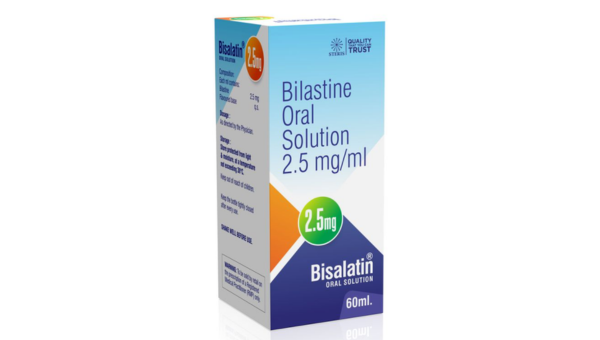
Bilastine 2.5mg Oral Solution – Pediatric Allergy Relief Syrup

N-Acetyl L-Cysteine (NAC), Pine Bark Extract & Resveratrol Tablets: Ingredients and Health Benefits
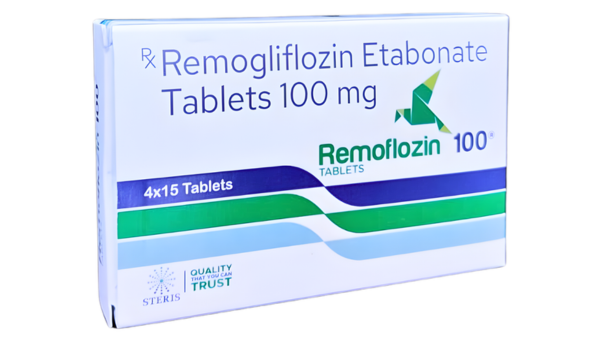
Remogliflozin Etabonate 100 mg: Benefits, Uses & Safety Guide
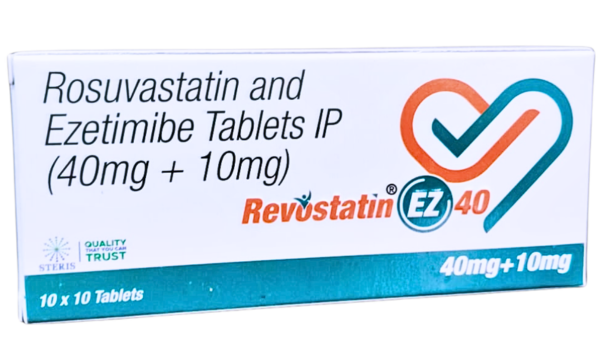
Rosuvastatin 40mg & Ezetimibe 10mg: Effective Support for Healthy Cholesterol

Clindamycin and Nicotinamide Gel – Acne Control & Pimple Treatment Solution
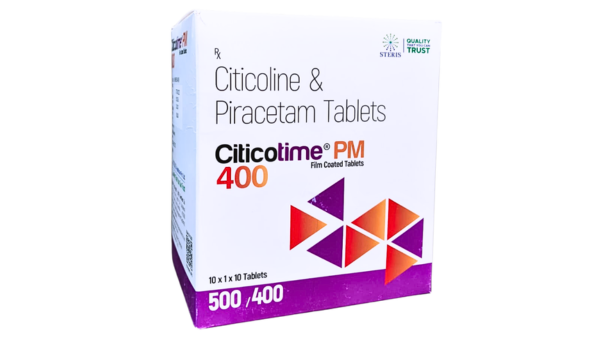
Citicoline and Piracetam Tablets for Memory, Focus & Brain Health

Providone Iodine 5% Higher Strength Gargle for Throat & Oral Infection Care

Charcoal Toothpaste with Calcium Carbonate & Coconut Oil | Advanced Oral Care

Best Anti-Dandruff Shampoo for Damaged Hair in India

Formoterol Fumarate Dihydrate IP 6 mcg & Budesonide IP 400 mcg: Uses and Benefits Explained

